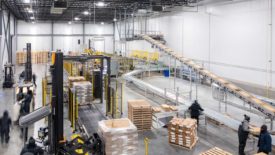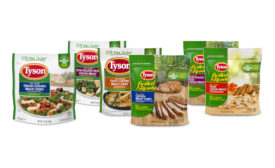Home » traceability
Articles Tagged with ''traceability''
Farm has the capacity to grow more than 2.4 million packages of herbs and leafy greens annually
Read More
Lower Costs in Plant-Based Commodities Could be Exponential Growth for the Category
Dr. Sasha Goodman, VegTech Invest President and Fund Manager
August 2, 2022
COLD SUPPLY CHAIN & LOGISTICS
Breakdowns in Supply Chains the Result of Years of Built-up Issues
February 8, 2022
Cold Supply Chain & Logistics
Why Technology and Traceability are Essential for Import/Export of Cold Foods Today
January 6, 2022
Top 3 trends transforming aseptic dairy industry
As consumers continue to demand eco-friendly solutions, restaurants and stores are finding that aseptic dairy is a sustainable solution that ensures less energy usage.
December 3, 2019
Elevate your expertise in refrigerated and frozen foods with unparalleled insights and connections.
Get the latest industry updates tailored your way.
JOIN TODAY!Copyright ©2025. All Rights Reserved BNP Media.
Design, CMS, Hosting & Web Development :: ePublishing














